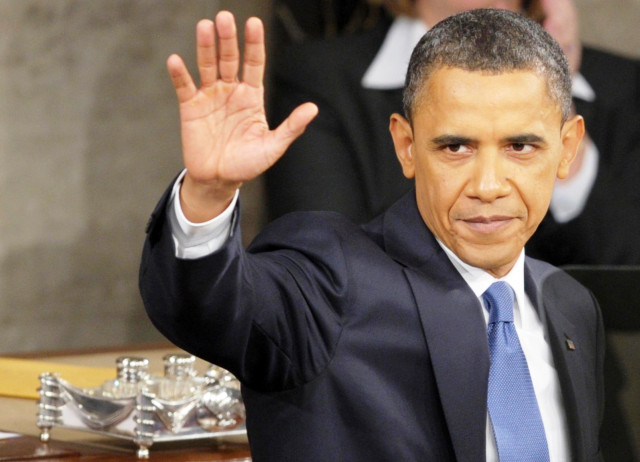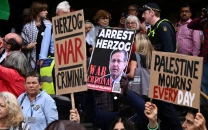Obama to keep aid flowing to Pakistan
About $1.1 billion earmarked for Pakistan counter-insurgency fund.

He also proposed spending almost $110 billion on Afghanistan, signalling little let-up in the US war drive despite demands for tougher spending controls at home.
Obama, in his budget for the 2012 fiscal year, proposed spending just $16 billion in Iraq -- a significant decrease as US diplomats take over from combat troops under a security agreement between the two countries.
Obama had put total US war costs in both countries at about $160 billion in budget requests for both 2010 and 2011.
Obama’s 2012 budget request for the State Department and US Agency for International Development (USAID) was $47 billion, up one percent from 2010 levels.
Republicans, who took control of the US House of Representatives in November elections, have called for a tough new look at non-military overseas spending amid widespread calls to control the ballooning US federal deficit.
The fiscal 2012 budget request focuses on money for some of Obama’s priorities including global health and food security initiatives, while cutting direct aid to several countries and regional organisations.
Obama’s budget calls for $107 billion in military spending in Afghanistan, where he has pledged to begin withdrawing the first of about 100,000 US troops fighting Taliban insurgents by the middle of this year.
The State Department, mounting its own civilian “surge” aimed at stabilizing the country, would spend an additional $2.2 billion there as it seeks to increase aid and assistance programmes.
Overall, the Iraq war has still been more costly than the Afghan conflict that began after the September 11, 2001 attacks on the United States.
The peak for US war funding in recent years was fiscal year 2008, the last year in office of Obama’s Republican predecessor George W. Bush’s last year in office, when spending on war operations hit $185 billion.
Published in The Express Tribune, February 15th, 2011.



















COMMENTS
Comments are moderated and generally will be posted if they are on-topic and not abusive.
For more information, please see our Comments FAQ